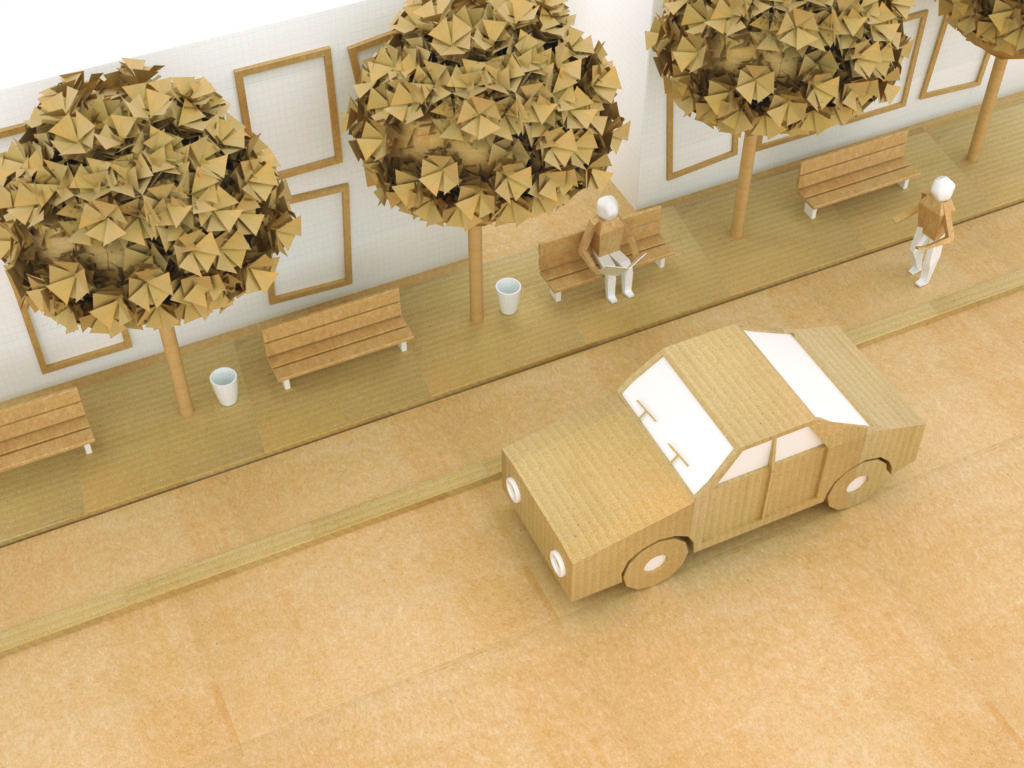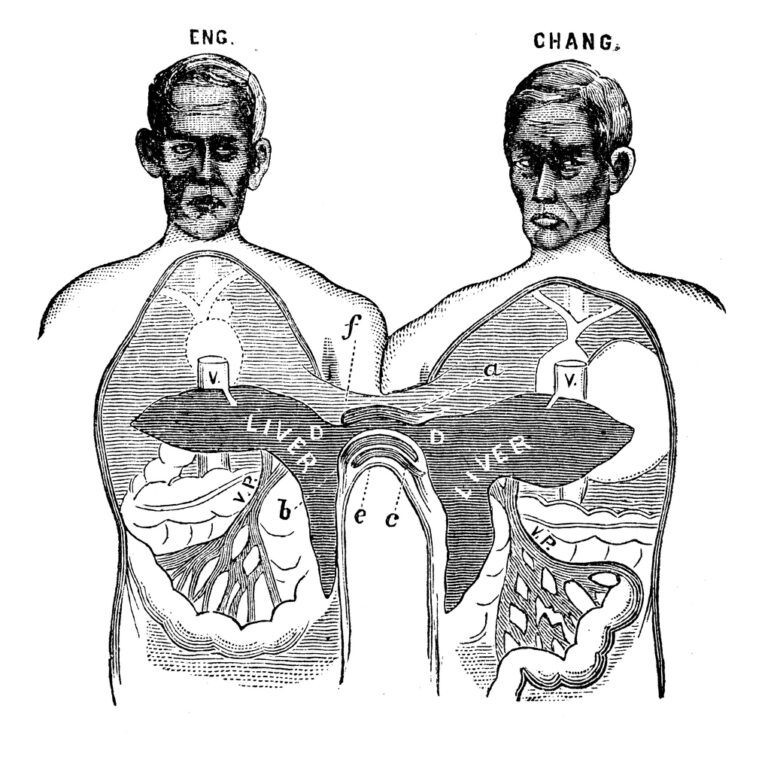You might be familiar with the three Rs – reduce, reuse and recycle – when it comes to helping the environment. However, despite the positive impact of these at-home initiatives, the issue of global waste goes beyond the household.
At the current rate, the world is set to produce three times as much waste as it does today by 2100. A recent report published in the science journal Nature forecasts that if current trends continue, solid waste generation rates will more than triple from today to exceed 11 million tonnes per day.
Within that world figure, there are certain peak rates depending on a country’s geopolitical status. OECD countries have the highest waste rates, producing around 1.75 million tonnes per day. However, these figures are mitigated by slower population growth, and waste reduction efforts. According to the journal article, this means these countries are likely to see waste levels peak by 2050 and then start to decline.
Countries within the Asia-Pacific region will not reach their peak until 2075, while Sub-Saharan Africa’s waste peak directly correlates with the global waste problem. As well as having a significant financial impact, these waste figures affect the environment in a variety of negative ways. Concerns include ash disposal and air pollution while landfills and other uncollected waste also contribute to climate change through the production of methane, a potent greenhouse gas.
CHANGE IS POSSIBLE
The 2100 forecast is based on a “business as usual” approach. The situation can reportedly be greatly improved if action is taken. “With lower populations, denser, more resource-efficient cities, and less consumption (along with higher affluence), the peak could come forward to 2075 and reduce intensity by more than 25 per cent. This would save around 2.6 million tonnes per day,” the report states.
Worldwide, there are already initiatives being taken across certain cities that are setting positive examples in waste reduction. In the US, San Francisco recycles or reuses about 55 per cent of its waste as part of its goal of “zero waste” by 2020. In Australia, several state and territory governments have banned single-use shopping bags, reducing the amount of plastic waste that ends up in landfill. Outside of government initiatives, there remains great scope for industry to develop strategies to reduce waste or provide recycling opportunities in an effort to win the war on waste.
REDUCE, REUSE, RECYCLE – SWEDISH STYLE
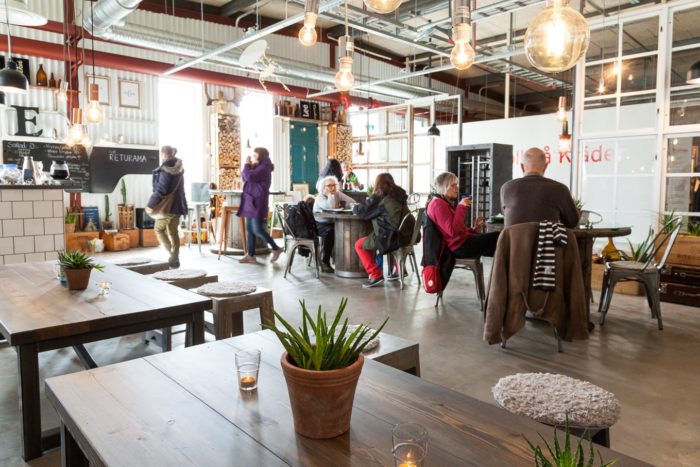
At first glance, it looks like an ordinary shopping centre. However, the ReTuna Aterbruksgalleria in the Swedish city of Eskilstuna sells only recycled, upcycled and repaired goods.
The centre first opened in 2015, and continues to be a world leader in fighting a culture of disposability and waste. It houses not only a shopping area, but also a recycling depot and education centre. It includes shops for home décor and furniture, refurbished electronics and computers, homewares, sporting goods and even outdoor plants. Workshops are also held across the stores, where customers can learn tasks such as how to repair household items or make their own lamps.
The centre is a partnership between the municipal government, not-for-profit organisations and local businesses. The goal is to help the community achieve more with what they already have, complementing Sweden’s reputation as a global leader in recycling.
THE RECYCLING GRIND
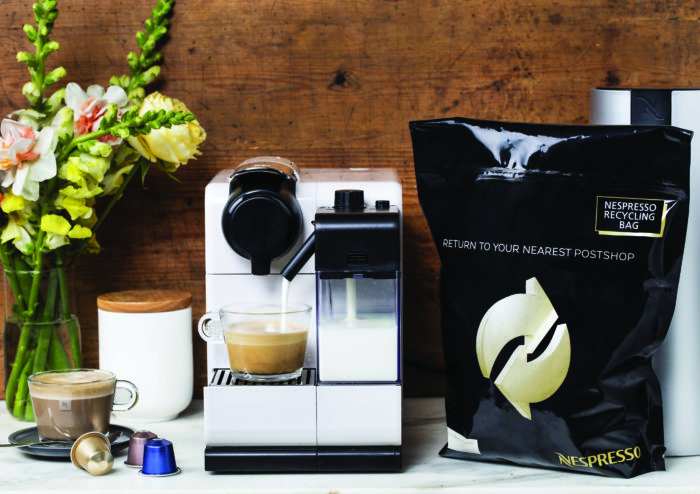
Closer to home, companies such as Nespresso are offering opportunities for their customers to enjoy their products in an environmentally responsible way. Having revolutionised the at-home gourmet coffee market with their machines that use the now-famous capsules, what to do with the by-product has become a global issue.
The good news is, contrary to many other similar brands on the market, Nespresso capsules are infinitely recyclable due to their aluminium-based structure. Nespresso has established collection points all over the country where consumers can return their used capsules, which will then be sent to a dedicated recycling plant in South Auckland. Even if consumers do not live in town centres, they are able to recycle their capsules at their local PostShop in a specially designed bag. In 2015, Nespresso partnered with TerraCycle to create a network of florists and garden centres where consumers can drop off their used capsules for recycling.
From here, the capsules are sent to a local facility and recycled into two streams, with the residual coffee being separated and sent to an industrial composting facility, while the capsules are smelted down to be made into new aluminium products.
Florist Roz Liddell, from The Lodge Studio in the Waitara township, joined the TerraCycle programme in 2015 and says it is a further extension of her company’s already-established environmental focus. “All waste from the floristry is composted and paper, wraps and ties are already recycled,” she says. “We were one of the first to sign up to the TerraCycle programme in 2015 and have been a Nespresso capsule collection point ever since.”
Nespresso says the programme is in keeping with their sustainability vision for 2020. Called The Positive Cup, this vision includes global sustainability goals in relation to Nespresso’s coffee sourcing, the responsible management of aluminium from sourcing to recycling, and improving its carbon footprint.
WRAP IT UP
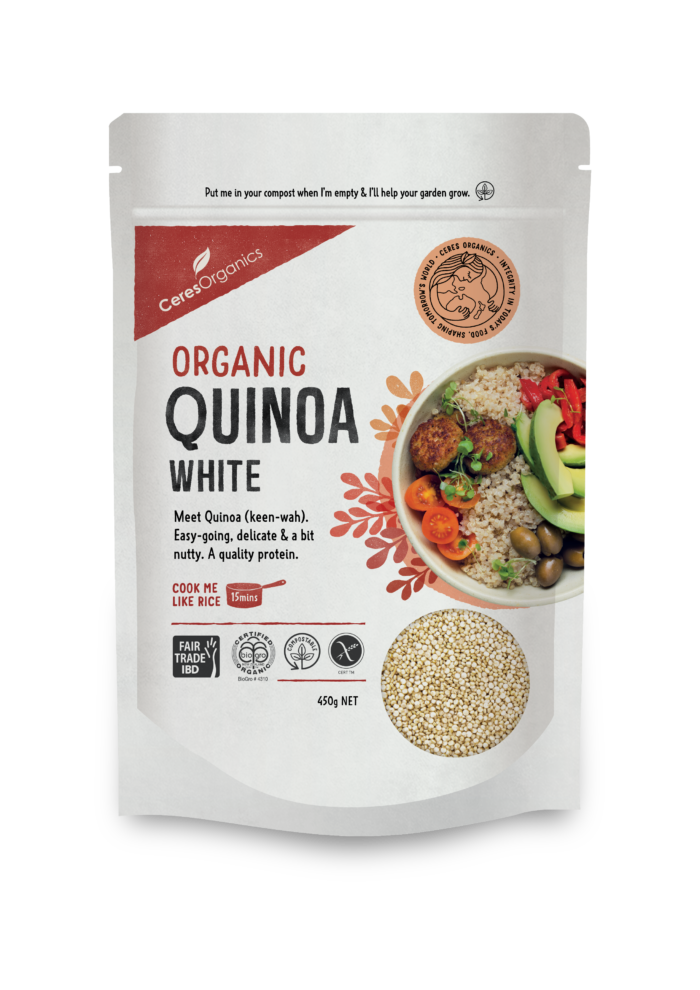
Ceres Organics is another company taking the initiative to reduce global waste. The food company has launched a revolutionary world-first compostable pack that helps maximise the eco-friendliness and freshness of their certified organic quinoa, seeds and nuts.
The new compostable ‘Econic®Clear’ packs provide the clarity and barrier properties required to display the high-quality packaged food, and ensure products stay fresh without the use of any unnatural additives. The packs feature oxygen and moisture barriers similar to those provided by traditional fossil-fuel films, and a convenient compostable zip opening to make it easy for consumers to reseal the bags. The packs are compostable in a home compost bin or worm farm containing heat, water, oxygen, soil and micro-organisms, making them much more environmentally friendly than other plastic wrappers on the market.
Having a product that is more eco-friendly but still effective is key to the Ceres Organics brand’s efforts to protect the quality of their products. The company has been wrapping its Raw Goodness food bars in Convex Econic film since 2015. Given the certified organic Raw Goodness bars contain raw ingredients with no preservatives or artificial ingredients to help extend their freshness, the product quality relies on a superior wrapping.
The high-moisture, oxygen and sealing barriers provided by the Econic wrap have allowed Ceres Organics to maintain its stringent quality control requirements, while still using a planet-friendly compostable packaging option.


